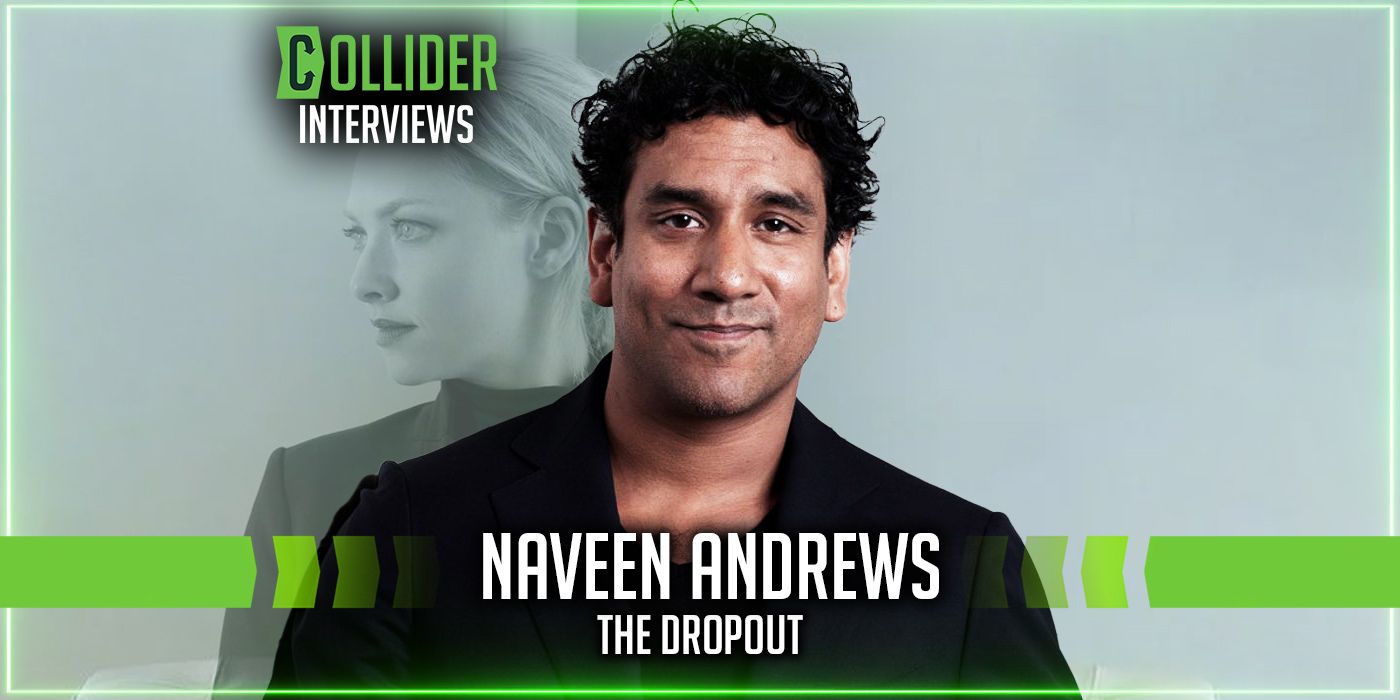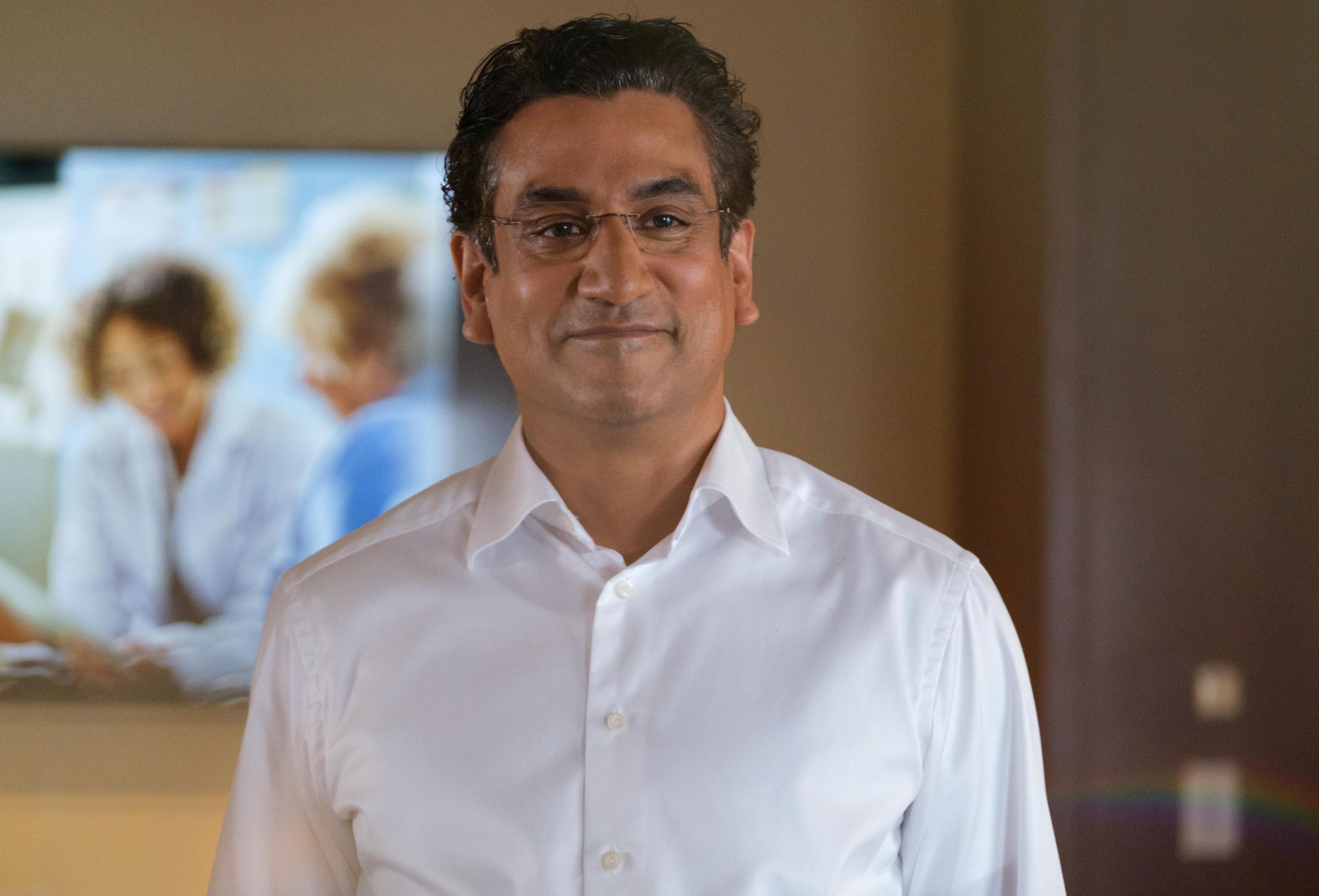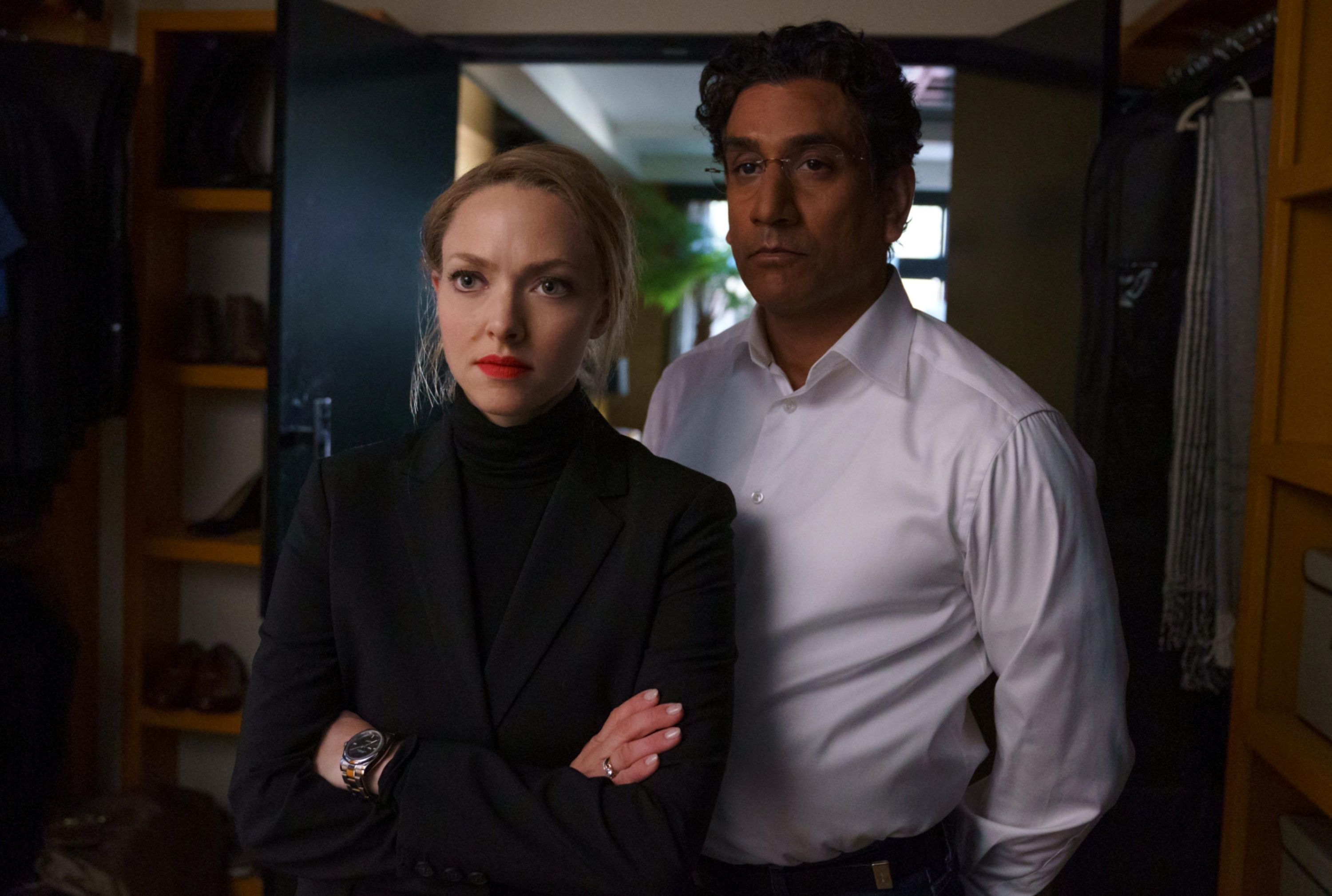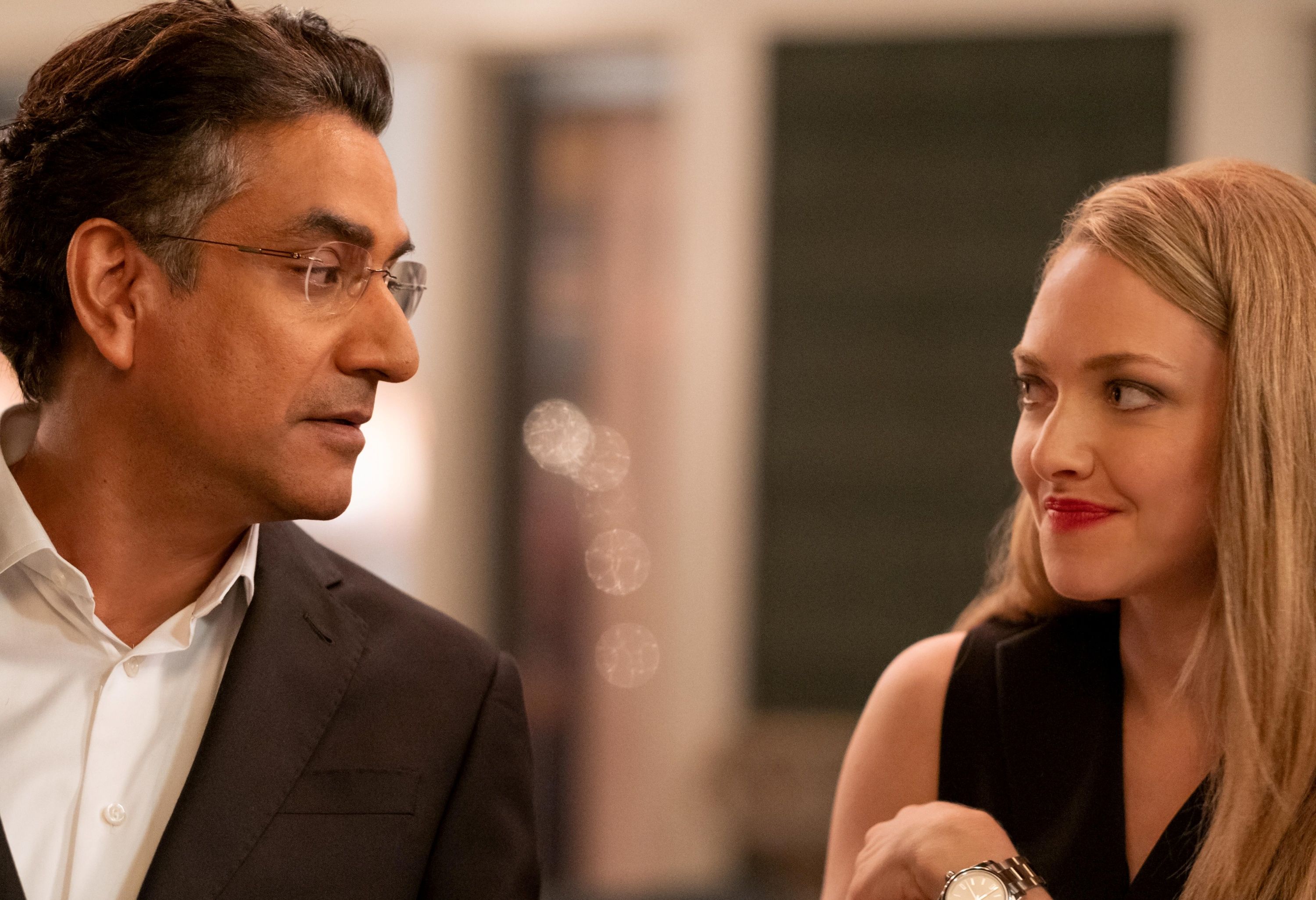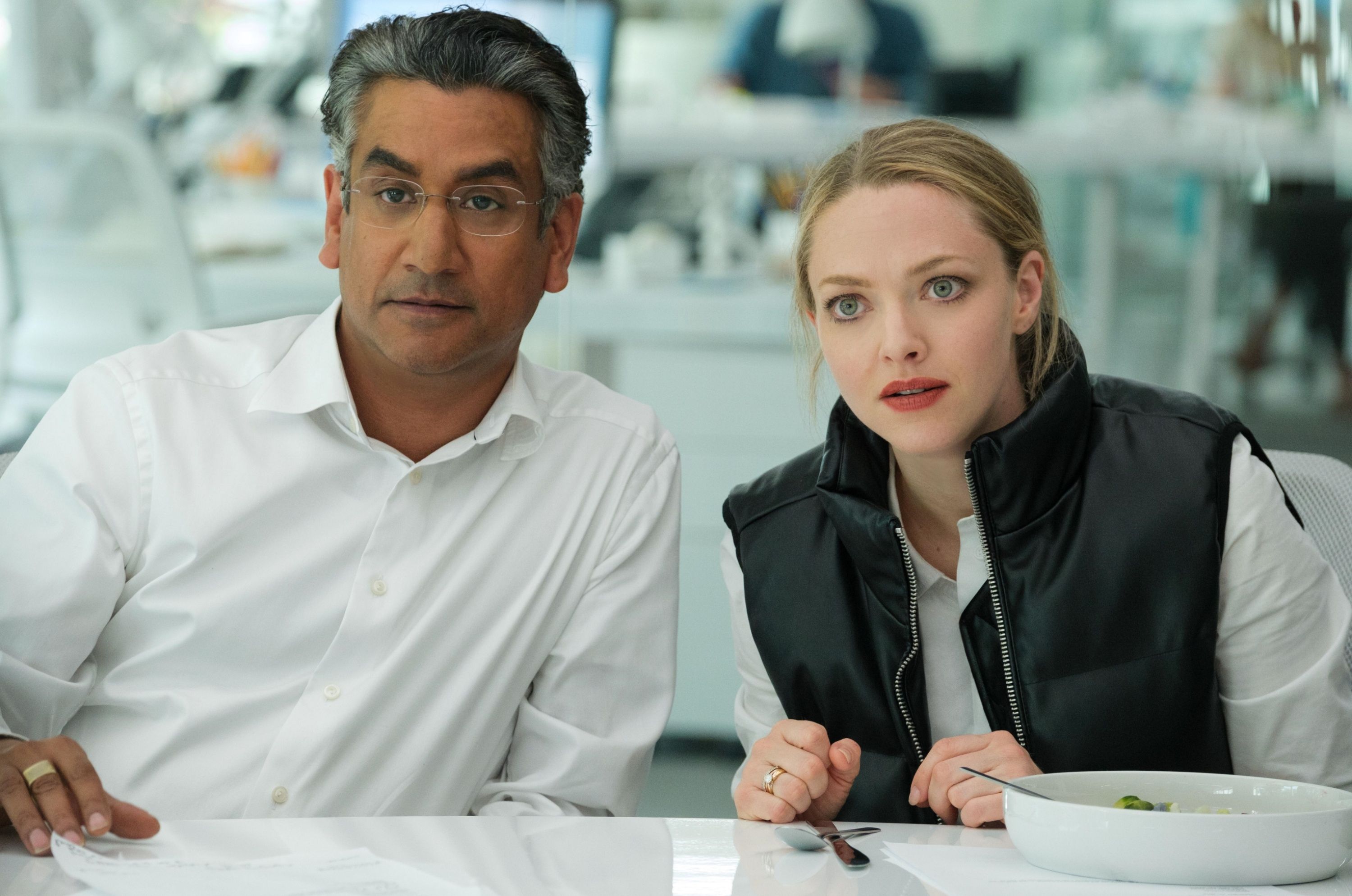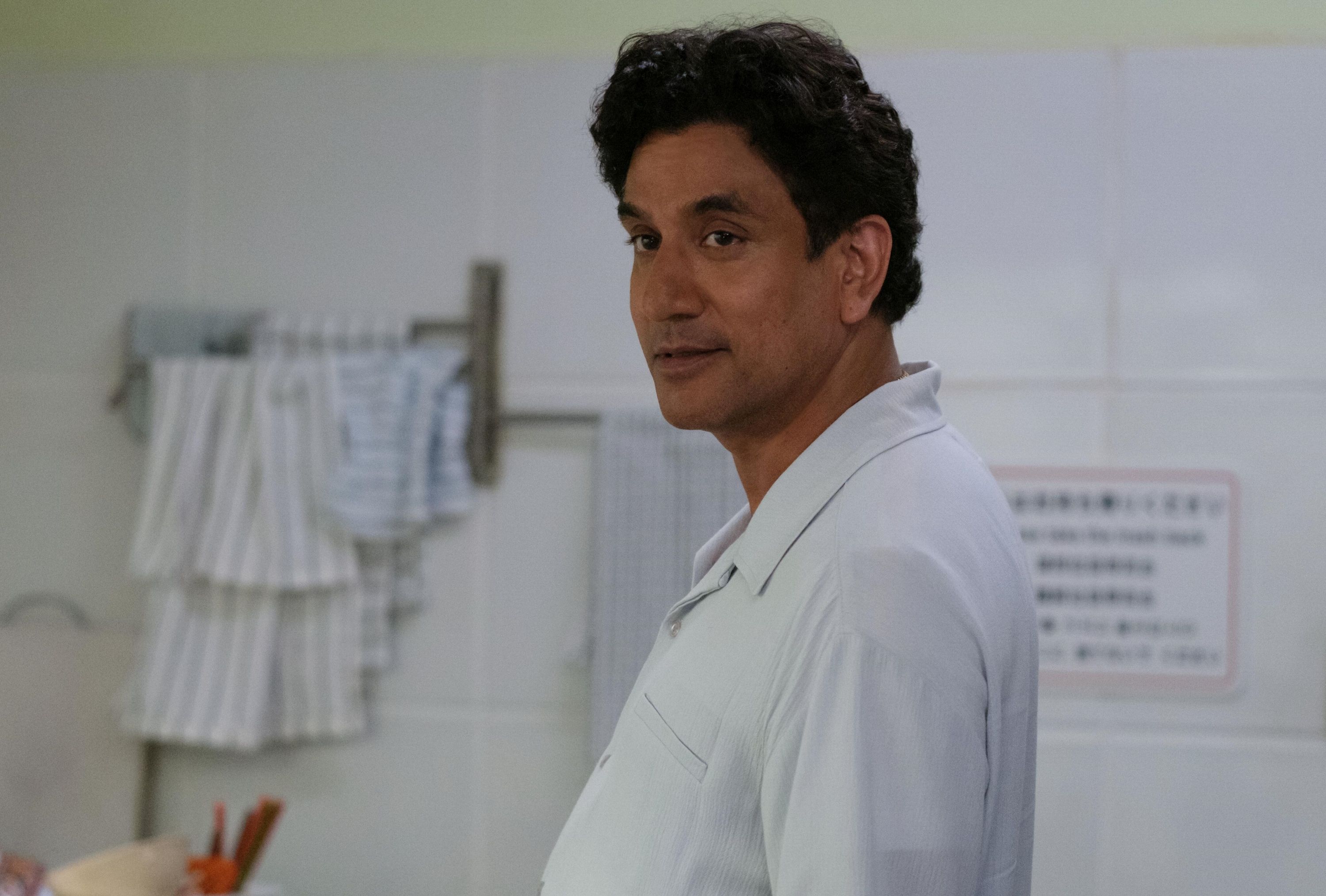Executive produced by showrunner Elizabeth Meriwether, the Hulu original series The Dropout tells the story of Elizabeth Holmes (Amanda Seyfried), Theranos, and the deception that pulled the curtain back on the world’s youngest self-made female billionaire to reveal the fraud of it all. It’s a tale of ambition and big dreams, but all the optimism in the world couldn’t help the tech startup founder out of the hole she dug for herself when her attempt to revolutionize the healthcare industry turned out to be nothing more than smoke and mirrors.
During this 1-on-1 interview with Collider, Naveen Andrews (who plays Sunny Balwani, a businessman who was the right-hand-man and secret boyfriend of Holmes) talked about why this project appealed to him, how this tale is almost Shakespearean, what most surprised him about this story, the unique experience of being a part of something that is still unfolding, the privilege it was to experience the work that Seyfried did as Holmes, and making the decision not to judge the real-life individuals that they were playing.
Collider: I was so fascinated by this story. When this project came your way, were you familiar with Elizabeth Holmes and Theranos and the fraud of it all, or was it something you had to learn more about?
NAVEEN ANDREWS: It was definitely something I had to learn more about. I remember when the story first broke in the media, I can’t say that I’m profoundly interested in the corporate world, or business, or startups. I was aware of what had happened. It seemed somewhat outrageous. There was a sense of incredulousness about how it could possibly have happened, and that was it. I didn’t pursue it further than that. But then, of course, when I saw the script, I realized that there were so many more dimensions to this tale. It’s almost Shakespearean, in a way. I thought it was like Macbeth, when I read the script.
It’s hard to understand how all of this got as far as it did, before it finally blew up in everyone’s faces. There are so many insane and crazy aspects to it, that it feels like it should have blown up long before it did.
ANDREWS: One would’ve thought.
What most surprised you about this story and about everything that you learned? It really feels like all the red flags had red flags.
ANDREWS: On a very human level, it’s the idea of credulousness. People want to believe, it seems, in different fields of human life, experience and religion. There’s almost a religious intensity to some of this story, in terms of how the characters present themselves to the world. They’re set up almost as icons in the consciousness of theirs. They’re very self-conscious. They know what they’re doing, in a sense. So, the idea of credulousness and belief is so fascinating because there’s no easy answer to that, is there?
No, there isn’t. We hear William H. Macy’s character say that it’s because Elizabeth Holmes is pretty and blonde that she gets away with what she’s doing. Do you think it was really that simple, or is that an oversimplification of everything that happened?
ANDREWS: If I remember correctly when Bill’s character says that, it’s almost tossed out. At least, that’s what I read into it. Even he was somewhat perplexed, at least, at how this could possibly happen. To me, it was almost like he was being deliberately trite. Obviously, there’s a lot more to it. There’s a great deal more depth to it than that.
It’s really just searching for any possible explanation for something when they clearly should have known better.
ANDREWS: I think the only way to have an understanding of that is to look at other areas of human life. You see people following or adhering mindlessly to some form of creed, for no apparent logical reason. We see it all the time. I do. Look at England.
Did it also feel like a very unique experience to be part of a story that was still playing out in real-time? The ending of this story was essentially still being written while you were working on this.
ANDREWS: Yes, it was a little odd, to say the least, in the sense that it was almost like the play within the play. We’d be on set shooting a scene, and then you’d have a break and we’d rush over to find out what was going on in the trial. That was a unique position to be in.
It feels like that’s not something you get very often, as an actor. There are a lot of true stories, but it’s usually things that have already concluded.
ANDREWS: Not when events are happening in real-time, as you’re shooting. Absolutely not. No.
Sunny is a character that we never really get to know that well. He’s somebody that we don’t have much history on or background for, or information on why he is where he is. How did you approach figuring out who he is? What did you feel you needed to learn about him, or decide for yourself about him, in order to play him?
ANDREWS: The first thing you said was quite interesting to me. I don’t think he knows or is aware of who he really might be. It’s quite a complex question because self could be shifting and changing, can’t it? Because he was so remote from me and obviously very different, in word and deed, it was important to physically resemble the character. I was able to have an emotional connection, in the sense of displacement and the fact that he’s a Hindu born in what is now Pakistan is and having to leave. That was interesting to me. If your identity and who you are, as a human being, is questioned at such an early age, I think that has ramifications later on, absolutely.
Do you think this was a situation where he just really loved her, so he was attracted to the promise of what she could offer, or was he fully aware of the fact that this was never going to happen?
ANDREWS: I think he was completely and utterly besotted with her. In my opinion, he might still be. That’s just my opinion. There’s a romantic aspect of the story, in the sense of, how far are you prepared to go, if you love someone? What are you willing to do for love? As we all know, that clouds one’s judgment, to some degree.
Would you have ever wanted to talk to him, if that was possible? Do you have questions that you’d want to ask him if you could?
ANDREWS: Maybe at some point, but certainly not before filming and not now. I feel what we have created are characters.
The relationship between Elizabeth and Sunny is so interesting to watch because she’s so focused on work and always distracted by the business side of things. Even when he tries to plan a night for them, she still seems to mentally be somewhere else.
ANDREWS: The way I saw it, and Amanda [Seyfried] and I shared this thought, the relationship was fundamentally unbalanced. There are plenty of examples of that, throughout the piece. And if there is that imbalance, you see some toxic behaviors that either partner might use to undermine the other, which is interesting.
Did you have a lot of conversations with Amanda Seyfried about the dynamic? Did you guys spend time figuring that out with each other, or was that pretty well laid out in the scripts?
ANDREWS: We made a decision, very early on, probably on day one, about what kind of relationship it was, in terms of the level of intimacy. In terms of how things played out, later on, and what might have been revealed in the trial or text messages that came out, perhaps our decisions were in the right ballpark.
Even though they don’t look exactly alike and probably don’t sound exactly alike, it’s uncanny how well Amanda embodies Elizabeth.
ANDREWS: Yes.
What was it like to be around that transformation and explore that with her, as a scene partner?
ANDREWS: It was a privilege to watch because you’d see it slowly come together in rehearsal. We were lucky enough to shoot some of the scenes in Beijing early on, and Elizabeth hasn’t developed that persona yet, in terms of the voice and the look. I remember Amanda walking up to me, when we weren’t shooting. I was in a break in the middle of a scene that I was shooting, and she had just come to the set, and she walked up to me, dressed in black with the lipstick. She just walked straight towards me, as Elizabeth, and it was like, “Woah.” It was great, but it was almost frightening. It was very exciting, seeing her develop it and refine it.
I love that we even get those moments in the show, seeing her developing that, testing it out, and figuring it out. It was so interesting to watch how it was laid out.
ANDREWS: Yes, and my character supports it, utterly, and doesn’t question it.
In order to do something like this, that really affects the lives and the health and the well-being of real people, do you feel like it must take a lack of conscious and morality to just keep letting this happen? Do you think they even stopped to think about the damage?
ANDREWS: In order to play these characters, and I think Amanda felt this too, it was important not to have any judgments about these people, in order to render them as human beings. You couldn’t have any preconceived notions of what our sense of right and wrong is, or it wouldn’t have been possible to do it. That’s not for me to say, in a strange way.
It’s just interesting because it makes you wonder if they’re sociopaths and if they have feelings, or whether they’re just compartmentalizing in some way?
ANDREWS: It’s very interesting for psychologists and psychiatrists. But if you’ve gotta put flesh on that skeleton, if you like, you can’t let the assumptions that one might ordinarily make affect the way you approach a character.
When you read a script, do you know pretty quickly, if it’s something you want to do? Are you someone who typically knows within the first few pages of reading something, or do you always like to finish reading a script before you decide if there’s something you could bring to it?
ANDREWS: I would like to finish reading the script, but usually you can tell, pretty early on, in terms of the quality of the writing. It’s a constantly changing media. It can be on the page, but then it goes to the editing room. It’s shifting and changing the whole time, and evolving into something where you can’t really define how it’s gonna be. I wish I could. I can’t. Maybe that’s a good thing.
The Dropout is available to stream at Hulu.

